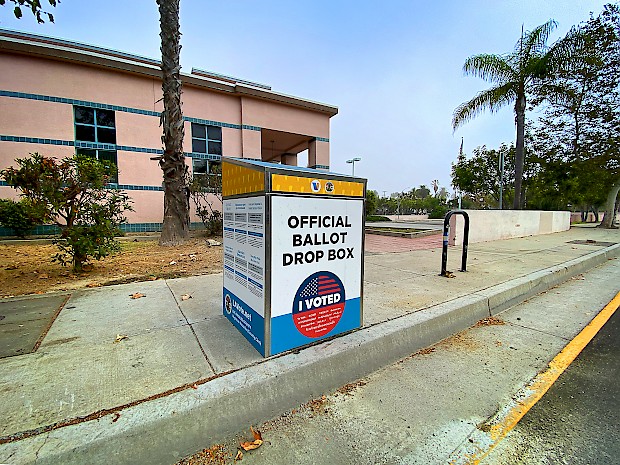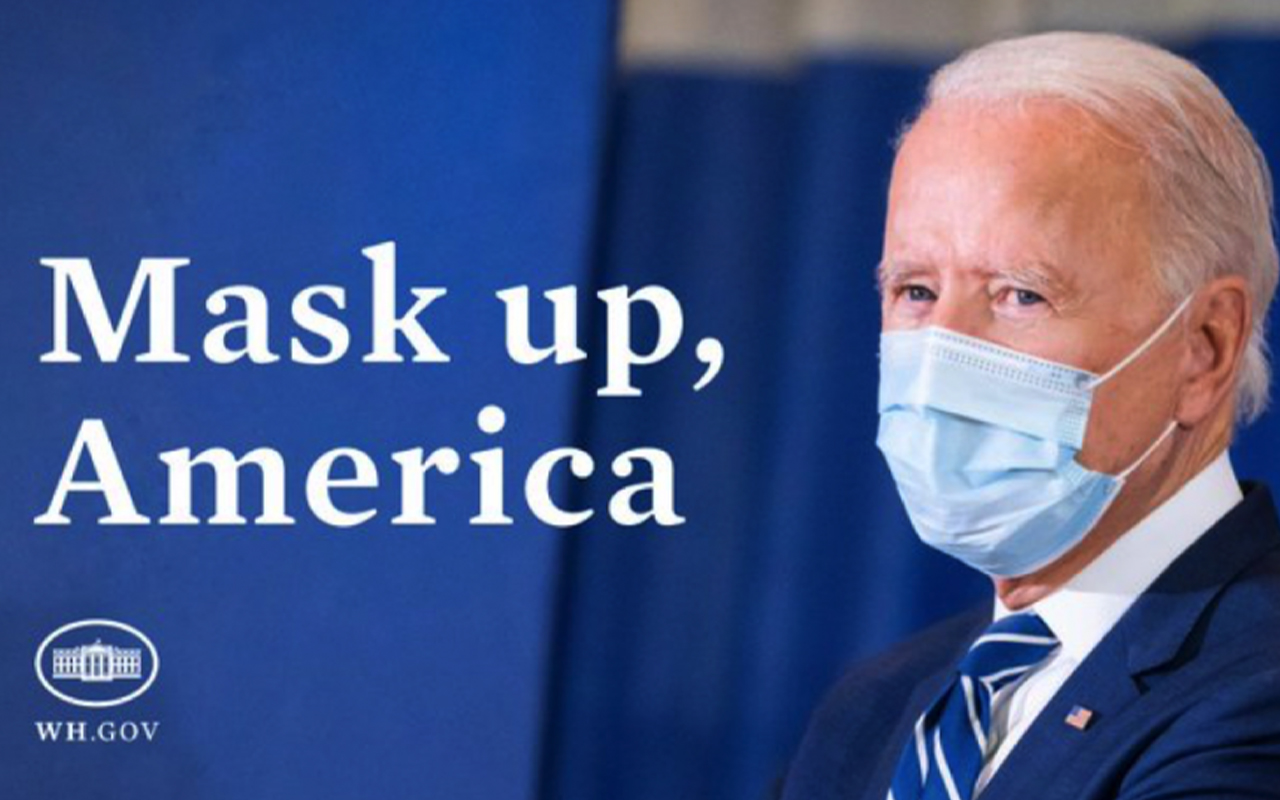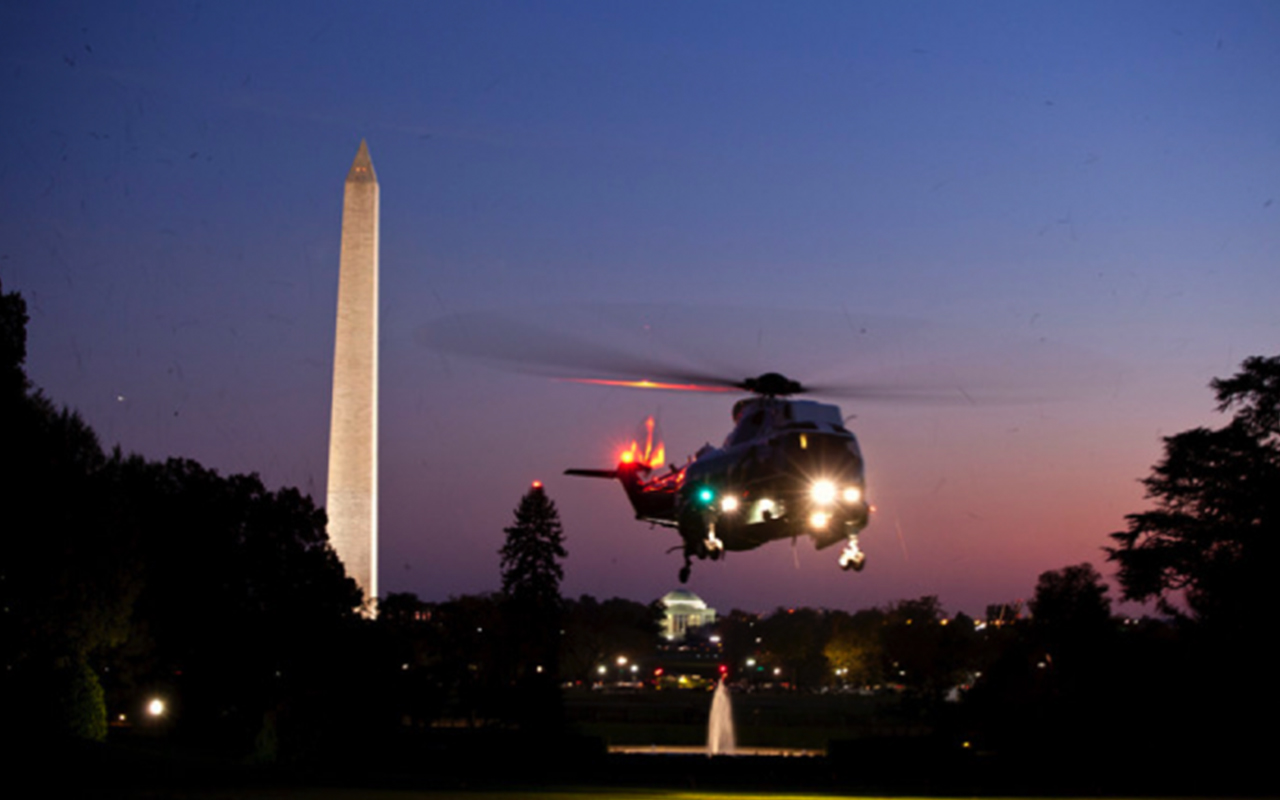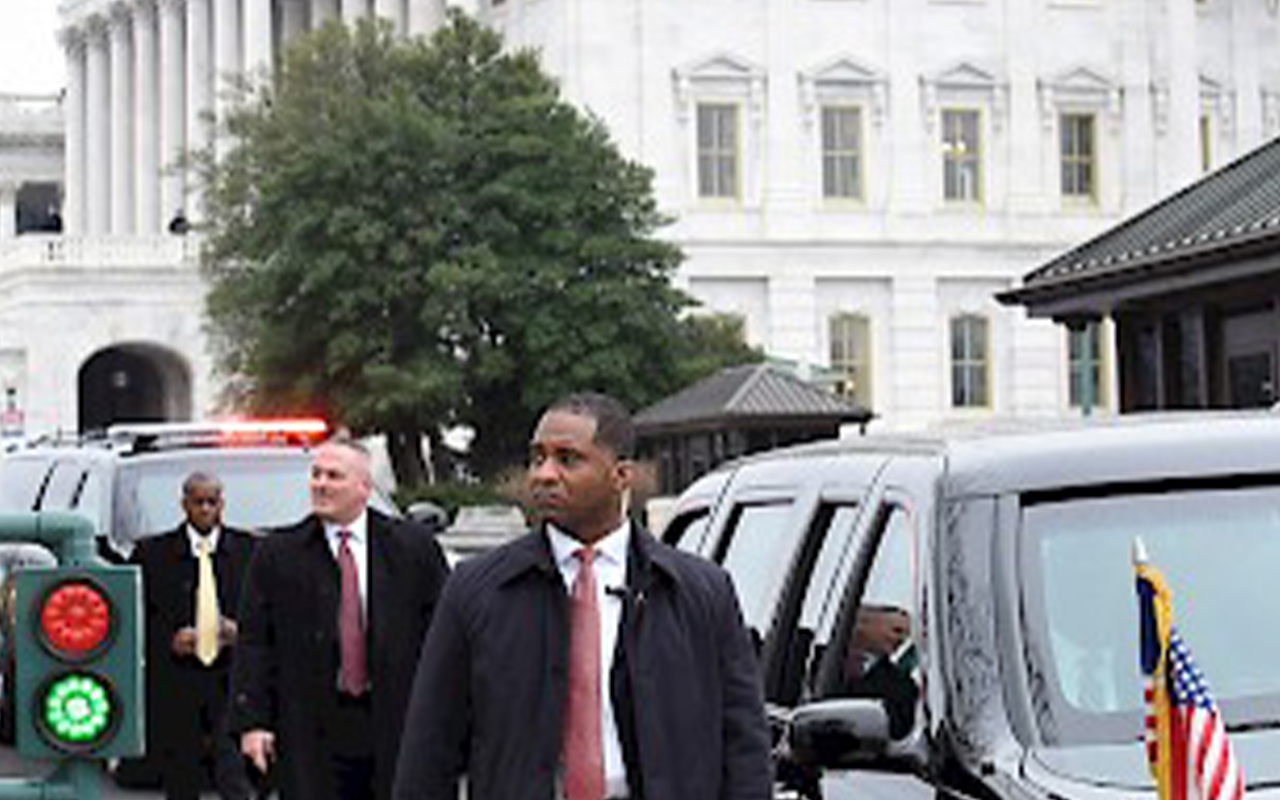Most recently published

Viewing the U.S. Election Process as an Essential Mission
Michael Prasad
February 10, 2021
As a critical element of democracy, elections need to be a part of the all-hazards planning, organization, equipment, training, and exercising benefiting from the nation’s emergency management agencies and departments at all levels of government. Election security, capability, and integrity, as well as the ability for citizens to exercise their

Moving on From 2020 – A Future for Emergency Management
Kyle R. Overly
February 3, 2021
The events that unfolded over the course of 2020 and 2021 challenged emergency managers in ways only previously imagined. In the midst of a global pandemic, emergency managers worked through the complexities of a global response while delivering core administrative functions and coordinating the response to countless other threats and

An Analysis of Presidential Accretive Power – Part 3
William H. Austin
January 27, 2021
The events that unfolded over the course of 2020 and 2021 challenged emergency managers in ways only previously imagined. In the midst of a global pandemic, emergency managers worked through the complexities of a global response while delivering core administrative functions and coordinating the response to countless other threats and

An Analysis of Presidential Accretive Power – Part 2
William H. Austin
January 20, 2021
The intersection between populism and progressivism is often contentious and reserved. At least, that is how it has been for the last century or so. To quote Robert Kennedy, “Democracy is messy, and it’s hard. It’s never easy.” Following the analysis on the founding and history of presidential power, this

An Analysis of Presidential Accretive Power – Part 1
William H. Austin
January 13, 2021
The following analysis is a three-part article that will cover a brief history, known examples of the exercise of presidential power, and illustrative examples of actions that historians believed were controversial. This analysis helps unwind the evolution of power in what some believe to be the most powerful leader in

COVID-19 & Lack of Reconnaissance
Christopher Tantlinger
January 6, 2021
The word “reconnaissance” conjures the image of sizing up the enemy and making a plan. Behind medieval history and WWII films about military battles across seas and foreign lands, military forces and commands strategized the battle with efforts revolving around reconnaissance. For many of those who diligently formulate and coordinate

Crisis Leadership: Leading Through Turmoil
Ronald L. Rowe, Jr.
December 16, 2020
The year 2020 has certainly had an abundance of turmoil and uncertainty: a global pandemic, a roller coaster economy, a national awakening to racial injustice, and a contested presidential election. All leaders have the required skills to manage in times of calmness. However, in times of turmoil and uncertainty, the

Think Recovery, Not Just Re-Entry, for Post-Pandemic Future
Ann Lesperance and Grant Tietje
December 2, 2020
Ten years ago, a team of representatives from King and Pierce counties, cities of Seattle and Bellevue, Joint Base Lewis McChord, and Pacific Northwest National Laboratory set forth on developing the Regional Recovery Framework for a Biological Attack in the Seattle Urban Area. A collaboration of the Seattle Urban Area

Tips to Prevent Cyberattacks While Working Remotely
Tashawn Brown
November 25, 2020
October was National Cybersecurity Awareness Month. Throughout the month, New York City (NYC) Emergency Management agency shared information to help community members take steps to safeguard their personal information. As the frequency and complexity of cyberthreats continue to increase, it is more important than ever to stay vigilant online. This

The New Age of Police Reform – Part 4
Joseph W. Trindal
November 25, 2020
It is yet to be determined if the intense calls for police reform and social justice are principally fueled by a contentious presidential election year or if the momentum behind public pressure for change will withstand political uncertainty. Building public pressure for police reform has transcended the political parties in

Building a Data-Driven Culture in Emergency Management
Patrick Campion
November 18, 2020
Emergency management and public safety agencies are increasingly using data analysis and visualization tools (e.g., Tableau, Microsoft PowerBI, ArcGIS, Google Data Studio) to inform their decision-making and help manage disasters in a multi-threat/hazard environment. In response to the global COVID-19 pandemic, federal, state, and local government agencies rapidly expanded the

The New Age of Police Reform – Part 3
Joseph W. Trindal
November 11, 2020
Accountability and transparency are prominent features of modern police reform. Yet, the concepts and structures for holding police accountable trace back to the origins of modern democratic police service in London, UK. A key motivation for creating public police service was the lack of accountability afforded by private police services

Building a Holistic Homeland Security Enterprise System
Daniel Rector
February 17, 2021
In the United States, a diverse group of agencies and organizations work together to accomplish the homeland security mission. Many of these organizations fall within the Department of Homeland Security (DHS). Organizations that are not directly a part of DHS act as partners and provide support in various ways. One

Viewing the U.S. Election Process as an Essential Mission
Michael Prasad
February 10, 2021
As a critical element of democracy, elections need to be a part of the all-hazards planning, organization, equipment, training, and exercising benefiting from the nation’s emergency management agencies and departments at all levels of government. Election security, capability, and integrity, as well as the ability for citizens to exercise their

Moving on From 2020 – A Future for Emergency Management
Kyle R. Overly
February 3, 2021
The events that unfolded over the course of 2020 and 2021 challenged emergency managers in ways only previously imagined. In the midst of a global pandemic, emergency managers worked through the complexities of a global response while delivering core administrative functions and coordinating the response to countless other threats and

An Analysis of Presidential Accretive Power – Part 3
William H. Austin
January 27, 2021
The events that unfolded over the course of 2020 and 2021 challenged emergency managers in ways only previously imagined. In the midst of a global pandemic, emergency managers worked through the complexities of a global response while delivering core administrative functions and coordinating the response to countless other threats and

An Analysis of Presidential Accretive Power – Part 2
William H. Austin
January 20, 2021
The intersection between populism and progressivism is often contentious and reserved. At least, that is how it has been for the last century or so. To quote Robert Kennedy, “Democracy is messy, and it’s hard. It’s never easy.” Following the analysis on the founding and history of presidential power, this

An Analysis of Presidential Accretive Power – Part 1
William H. Austin
January 13, 2021
The following analysis is a three-part article that will cover a brief history, known examples of the exercise of presidential power, and illustrative examples of actions that historians believed were controversial. This analysis helps unwind the evolution of power in what some believe to be the most powerful leader in

COVID-19 & Lack of Reconnaissance
Christopher Tantlinger
January 6, 2021
The word “reconnaissance” conjures the image of sizing up the enemy and making a plan. Behind medieval history and WWII films about military battles across seas and foreign lands, military forces and commands strategized the battle with efforts revolving around reconnaissance. For many of those who diligently formulate and coordinate

Crisis Leadership: Leading Through Turmoil
Ronald L. Rowe, Jr.
December 16, 2020
The year 2020 has certainly had an abundance of turmoil and uncertainty: a global pandemic, a roller coaster economy, a national awakening to racial injustice, and a contested presidential election. All leaders have the required skills to manage in times of calmness. However, in times of turmoil and uncertainty, the

Think Recovery, Not Just Re-Entry, for Post-Pandemic Future
Ann Lesperance and Grant Tietje
December 2, 2020
Ten years ago, a team of representatives from King and Pierce counties, cities of Seattle and Bellevue, Joint Base Lewis McChord, and Pacific Northwest National Laboratory set forth on developing the Regional Recovery Framework for a Biological Attack in the Seattle Urban Area. A collaboration of the Seattle Urban Area

Tips to Prevent Cyberattacks While Working Remotely
Tashawn Brown
November 25, 2020
October was National Cybersecurity Awareness Month. Throughout the month, New York City (NYC) Emergency Management agency shared information to help community members take steps to safeguard their personal information. As the frequency and complexity of cyberthreats continue to increase, it is more important than ever to stay vigilant online. This

The New Age of Police Reform – Part 4
Joseph W. Trindal
November 25, 2020
It is yet to be determined if the intense calls for police reform and social justice are principally fueled by a contentious presidential election year or if the momentum behind public pressure for change will withstand political uncertainty. Building public pressure for police reform has transcended the political parties in

Building a Data-Driven Culture in Emergency Management
Patrick Campion
November 18, 2020
Emergency management and public safety agencies are increasingly using data analysis and visualization tools (e.g., Tableau, Microsoft PowerBI, ArcGIS, Google Data Studio) to inform their decision-making and help manage disasters in a multi-threat/hazard environment. In response to the global COVID-19 pandemic, federal, state, and local government agencies rapidly expanded the
The New Age of Police Reform – Part 2
Joseph W. Trindal and Lynn Holland
October 28, 2020
During the years leading up to 2020, the policing profession has faced many challenges attracting talent and retaining experience, particularly among sworn officers. A robust national economy, as evidenced by exceptionally low unemployment, had been one contributing factor to diminished applicant interest in the police profession. In 2017 and 2019,
COVID-19 Testing – What It Is & Why It is Important
Matt Scullion
October 28, 2020
In the age of COVID-19, community leaders and the public they serve are bombarded with news related to testing. However, many do not understand the value the results can provide, to whom they should be given, and the actions that are allowed and should be taken. These questions need to
The New Age of Police Reform – Part 1
Joseph W. Trindal
October 21, 2020
As if the first two decades of the 21st century were not dynamic enough, the first year of the third decade has impacted every person on multiple levels. While the viral pandemic continues to affect every profession, health care professionals around the world are dramatically reassessing their service delivery models.
Hope to Action: Medical Equipment for Children Post-Disaster
Marsha Williams, Judy Kruger, Eli Fresquez and Eric J. McNulty
October 14, 2020
Effective disaster response and recovery involves the whole community. In the United States, there is a wide variation as to how families acquire durable medical equipment (DME) for their children with disabilities post disaster. DME is essential for those children to maintain their usual level of independence as well as
Law Enforcement’s Perfect Storm 2020
Joseph W. Trindal
October 14, 2020
Law enforcement is having a perfect storm with challenges in hiring, challenges in retention, and challenges with early retirement. This podcast is a follow up to a discussion that began in January 2017 with Joseph Trindal. Joe leads a team of retired federal, state, and local criminal justice officials providing
Bringing Calm to Chaos: HICS & the Coronavirus Pandemic
Andrew R. Roszak
October 7, 2020
The hospital incident command system (HICS) was designed decades ago to provide a decision-making framework to manage incidents and disasters. Now, more than ever, health care systems are relying on HICS to help meet the challenges of the coronavirus pandemic. This interview with Dr. Brent Kaziny and James Mitchell explores
Hospital Resilience – Operational Perspectives From COVID-19
Craig DeAtley, Connor Scott, James Terbush and W. Craig Vanderwagen
October 2, 2020
The concept of hospital resilience has changed in light of COVID-19. Despite planning and training for unexpected worst cast scenarios, one key assumption was not consistent with this pandemic response – that not everyone would be affected. This webcast discusses the gaps, challenges, and opportunities related to this ongoing response
Earthquake Preparedness in Non-Earthquake Country
Stephen Maloney
September 30, 2020
Emergency management is an evolving discipline that requires a progressive emergency manager to fulfill new and expanding requirements for success. Successful leaders in this field follow a systematic problem-solving process and excel at coordinating multiple agencies and information sources rather than simply being experts in one subject. The seven and
Disaster Support – Meeting Today’s Needs
Catherine L. Feinman
September 30, 2020
Despite emergency planners using worst-case scenarios and high-impact, low-frequency events when planning for disasters, experiencing an event in real time exposes gaps in those plans that were not foreseeable (or at least not included in the plan). Furthermore, as time goes on, resources and other needs naturally change. In order
Public Safety Drones: Disasters & Drones for Good
Charles L. Werner
September 16, 2020
Drones are having a dramatic impact on public safety and emergency management operations. While some form of public safety drone has been in place for a while, drones did not begin to see wider adoption until 2016 when the Federal Aviation Administration (FAA) implemented 14 CFR Part 107 (Part 107)
In an Era of Coronavirus, Do Not Forget Security
Andrew R. Roszak
September 2, 2020
The United States is currently facing historic challenges. Against the backdrop of a global pandemic, the United States is experiencing an historic rise in gun violence and civil unrest. Social issues, such as a dramatic increase in unemployment, a rise in domestic violence, an increase in substance abuse, social isolation,
Remote Contact Tracing: A New Twist on an Old Practice
David Reddick and John Anthony
August 26, 2020
The idea of contact tracing is nothing new. It has been practiced for decades to help stop the spread of infectious diseases such as smallpox and HIV. It has been taught to public health professionals for decades. However, with the global explosion of the COVID-19 pandemic in 2020, it has
Follow Us
Get Instant Access
Subscribe today to Domestic Preparedness and get real-world insights for safer communities.


